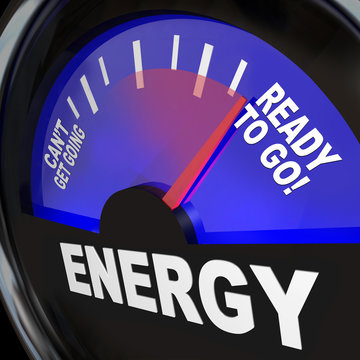What do booze, an aching back, and a bad mood have in common? They all suck away your energy. But you can fight back. We mined hundreds of scientific studies and interviewed dozens of experts to compile 50 of the very best tips to rev your engines—right now!
Nix the nightcap. Alcohol prevents your body from entering REM sleep (the most restful sleep phase). So, even if you’re getting plenty of sleep each night, you may not feel fully rested.
Take a ‘roid test. If you’re tired all the time, you may have a thyroid problem. Other warning signs to look for include weight changes, a hoarse voice, lethargy, and hair loss.
Light up. Turn on your desk lamp or open the blinds and let in some sun. Your body needs vitamin D (from sunlight) in order to help keep energy levels at their peak.
Have your BP checked. Up to 60% of men between 18 and 39 may have high blood pressure, a prime source of chronic fatigue.
Get your snack on. Your body needs fuel to run at its peak. Skip even one meal because you “don’t have time to eat” (sound familiar?) and your pep will plummet.
Munch on berries. Doesn’t matter what kind, they’re all high in energy-boosters called anthocyanins.
Bulk up your diet. Cardiff University researchers found that men with high-fiber diets have less fatigue than men with lower-fiber diets.
Try L-carnitine. The vitamin-like amino acid may help your muscles recuperate more quickly after a hard day at the gym. To feel the jolt, try taking 500 mg a day for at least three weeks.
Get steamed. According to one U.K. study, up to 68% of men feel more energetic after a hot bath or shower.
Eat more fish. Studies show the omega-3s in foods like tuna and salmon can help fight depression, leaving you happier and more energized. Don’t like fish? Try eating more walnuts and flaxseed, or pop a 1,000 mg fish-oil supplement instead.
Turn it up. A report in Online Journal of Sport Psychology says that loud music may be one of the most effective tools for relieving stress and fighting fatigue.
Join the B-team. The American Journal of Clinical Nutrition reports that many athletes and exercise buffs don’t get enough B vitamins. That’s bad, since thiamin, B6, B12, and riboflavin are all necessary for the body’s production of energy.
Limit lunch to 500 calories. High-calorie meals take longer to digest and end up pulling energy away from other cells in your body.
Take a hike. Instead of slamming some candy when the 4 p.m. blahs strike, take a quick walk around the block. Physical activity oxygenates blood cells, helping to refill your body’s fuel tank.

